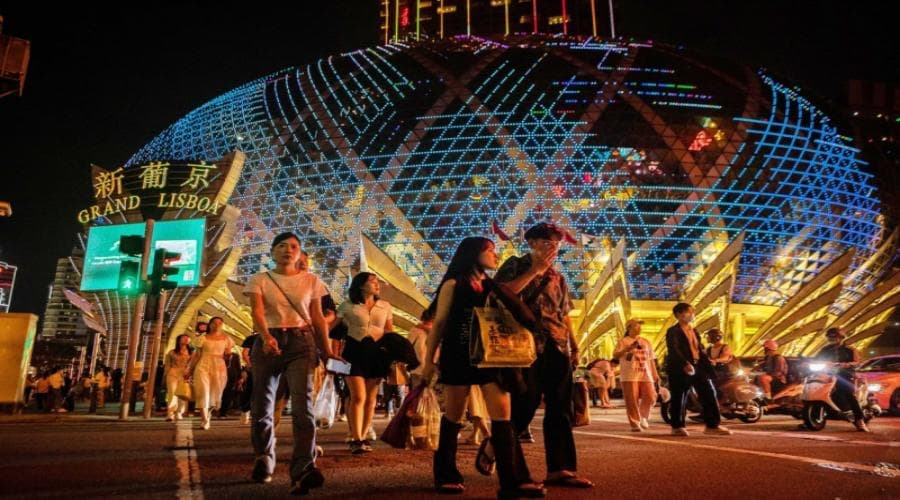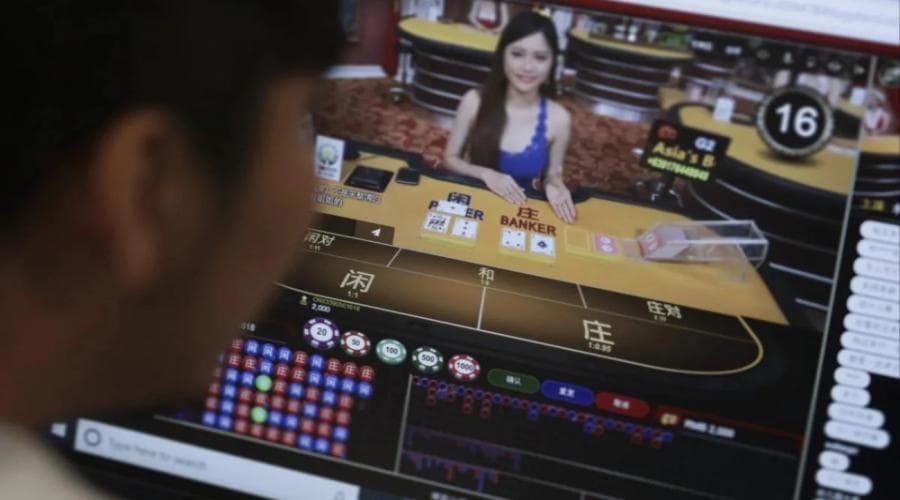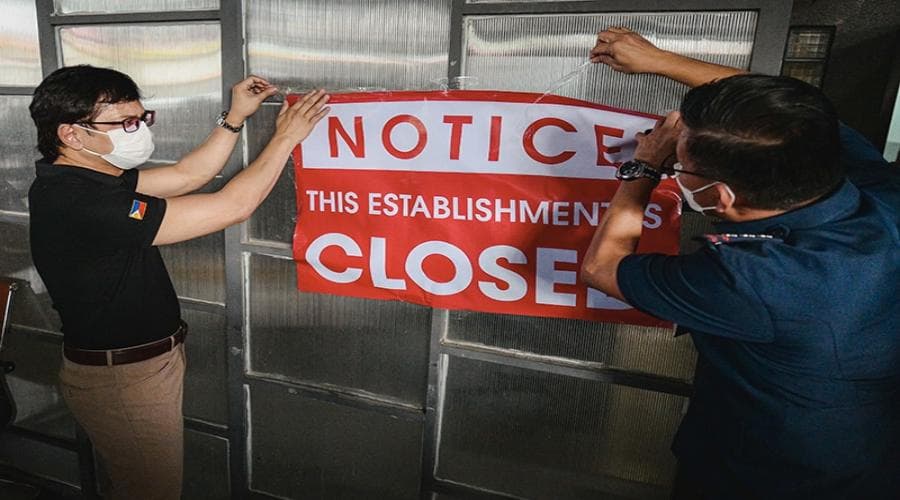A POPULAR DECISION BY THE PRESIDENT OF THE PHILIPPINES
Philippines government in late July ordered the closure of online gambling platforms catering to overseas demand, known as POGOs. A decision that received widespread public support, even though it could put about 40,000 people “following” this “gambling” industry out of work.
WHAT IS A POGO?
For years, Chinese gamblers have flouted their country’s gambling ban by satisfying their addiction online. Baccarat, roulette, poker, and other betting games are streamed live online, with young women sitting behind tables, dealing cards and spinning the wheels, just like in a real-life casino.
PHILIPPINE-BASED POGOS RUN GAMBLING SITES FOR CUSTOMERS
While the gamblers are in China, their on-screen dealers are far away, in studios in the Philippine capital, Manila. Philippine officials say the majority of the operations are run and managed by Chinese nationals.
The companies operating in the Philippines are known as POGOs (short for “Philippine offshore gaming operators”), a term that covers a variety of platforms, including e-casinos and sports betting sites designed specifically for the offshore market. They occupy physical space in the Philippines, but players must reside in other jurisdictions.
Last month, Manila moved to shut down POGOs, citing concerns that the businesses had become fronts for a range of crimes. Philippine officials have not taken issue with gambling itself, but with the various forms of crime associated with it, such as financial fraud, money laundering, prostitution, human trafficking, kidnapping, brutal torture, and even murder.
BAN IN PRESIDENTIAL SPEECH
The ban was announced in a speech by President Ferdinand Marcos Jr. in late July. “The egregious abuse and disrespect of our system and laws must stop. We must stop their (POGO companies) destruction of our society and their tarnishing of our country,” the Philippine head of government said, ordering the government to deport foreign POGO workers—mostly Chinese-back — back to their home countries within two months and close all POGO businesses by the end of the year.
President Marcos Jr.’s determination has been welcomed by the majority of the Filipino public. According to a nationwide survey conducted by Quezon City-based social research firm OCTA Research, 58% of Filipinos polled agreed with the ban, 23% wanted POGOs to be more strictly regulated, and only 19% said there should be no ban.

CHINA ALSO BACKS THE PHILIPPINES BAN
Chinese law makes it illegal for its citizens to gamble in any form, at home or abroad. About a decade ago, China launched a series of crackdowns on gambling by its citizens, targeting so-called junket services that help mainland players “smuggle” to casino hubs like Macau. Beijing has also imposed travel restrictions on major gambling destinations.
But that has also sent Chinese gamblers flocking to the internet. A 2022 report by market research firm Technavio said that 37% of global growth in online gambling will come from Asia, with China driving the growth.
Where there is demand, there is supply. Mainland criminal networks seek out other countries to open online gambling companies under relatively “safe” legal covers for the host country, such as the Philippine POGO model. In theory, they do not affect the countries where they are headquartered because they only provide online gambling services to foreign customers. Meanwhile, the tax revenue will contribute to local budgets and their operations will create jobs for local people.
COMPANIES GENERATE ONLY 4.3% OF THE GAMING INDUSTRY’S REVENUE IN THE PHILIPPINES
But the practice quickly became a front for a number of crimes. Benedikt Hofmann, senior regional representative for the United Nations Office on Drugs and Crime, said POGO licenses provided a “veil of legitimacy” for shady businesses that operated online scam centers where employees worked in slave-like conditions and became con artists to lure online players into “empty pockets.”
“The Philippine government’s ban will therefore have a major impact because it will provide much-needed clarity to law enforcement agencies,” Hofmann said.
In the Philippines, POGO operations are overseen by state regulators, but many POGO companies are operating “underground.” The official website of the industry regulator, the Philippine Amusement and Gaming Corporation (PAGCOR), lists only a few dozen licensed POGO operators, while a recent document from the Philippine Senate said there were around 300 POGO sites operating under fake licenses.
The issue of POGO regulation was brought to the floor earlier this year, when a Philippine Senate committee held a series of public hearings targeting a mayor accused of involvement in POGO companies believed to be a haven for crime in the town of Bamban, northwest of Manila.

CHINA, IN AN EFFORT TO CURB ITS CITIZENS’ GAMBLING ACTIVITIES ABROAD, HAS BACKED THE PHILIPPINES’ POGO BAN
Specifically, Bamban Mayor Alice Guo was accused of helping to set up a real estate company and leasing the premises to a POGO center, which was later found to be the base for online scams and other crimes. Investigators said Guo had business ties with two Chinese nationals recently convicted of money laundering in Singapore and had other links to criminal activity.
An anti-corruption investigation led to the suspension of Alice Guo and the freezing of assets belonging to her and at least two associates, including 90 bank accounts, real estate, and a helicopter. The Philippine Anti-Money Laundering Council said investigations had uncovered the suspects’ involvement in “money laundering, human trafficking, and other illegal activities.”
Gou has been detained pending trial. The incident became the last straw that forced the Philippine government to completely cut ties with POGOs. And, this move was also welcomed by China, because Beijing was tired of online gambling as well as the crimes that came with it from overseas mainland criminal gangs.
In mid-June, a spokesperson for the Chinese embassy in Manila even called on local authorities to immediately ban POGOs “to eradicate this social evil”. He said POGOs “are detrimental to both the interests and images of the Philippines and China as well as the relations between the two countries”.
CORRECTING MISTAKES
POGOs thrived under former President Rodrigo Duterte, who was in power for six years until 2022 and saw regulating them as a source of revenue. But the industry has not been as lucrative as expected. According to official figures from the Philippines, licensed POGOs generated about 4.3% of the country’s gaming revenue last year, at $54 million, of which $36.7 million was contributed to the budget. By comparison, traditional casinos inside designated resorts in the Philippines generated 45% of total revenue, or about $566 million, and contributed $384.3 million to the budget.
Speaking to This Week in Asia, Filipino security and defense analyst Vincent Kyle Parada said that POGOs contribute only 0.2 percent of the country’s gross domestic product, while the Philippines loses nearly 100 billion pesos (about $1.7 billion) a year due to the consequences of maintaining these companies’ operations. He also agreed with the Philippines’ Department of Finance’s view that the social and reputational costs of POGOs far outweigh any economic benefits the Southeast Asian country receives.
“POGOs’ links to organized crime, such as gambling rackets, torture, loan sharking, human trafficking and other illegal activities, should make foreign investors think twice before investing money in the Philippines. The same goes for tourists, especially East and Southeast Asian tourists, who have been frequent victims of this type of crime in the past,” said Vincent Kyle Parada.

PHILIPPINES HAS BEEN STRUGGLING FOR YEARS TO IMPROVE MONEY LAUNDERING
The Philippines has been struggling for years to improve its record on money laundering, especially in relation to its opaque gambling sector, according to the Wall Street Journal. The Financial Action Task Force (FATF), a Paris-based intergovernmental body that sets standards to combat money laundering and terrorist financing, has placed the Philippines on its so-called “gray list” of countries that are under scrutiny but have committed to addressing regulatory shortcomings.
So it’s understandable that President Marcos Jr. is determined to “clean up” POGOs, even though the ban will leave some 40,000 people unemployed. According to Dr. Gary Ador Dionisio, Dean of the School of Diplomacy and Management at De La Salle University (Manila), if there is a suitable roadmap to help POGO-dependent workers transition to other economic activities with stable income, the ban is still worth implementing.
“Now that some of our compatriots have been drawn into and to some extent dependent on POGO-dependent economic activities such as transportation services, food businesses, rental housing, etc., the ban should be accompanied by a well-planned transition process,” said Dr. Dionisio.
